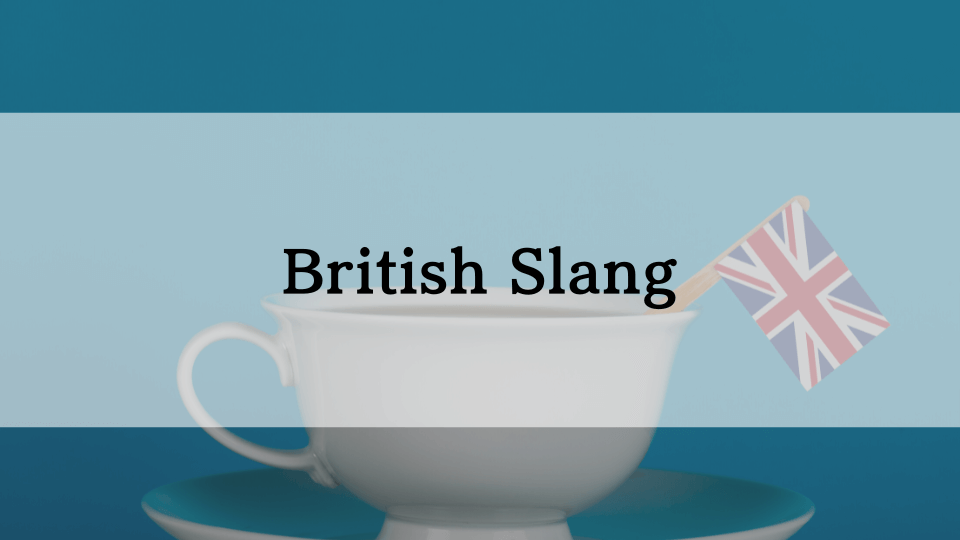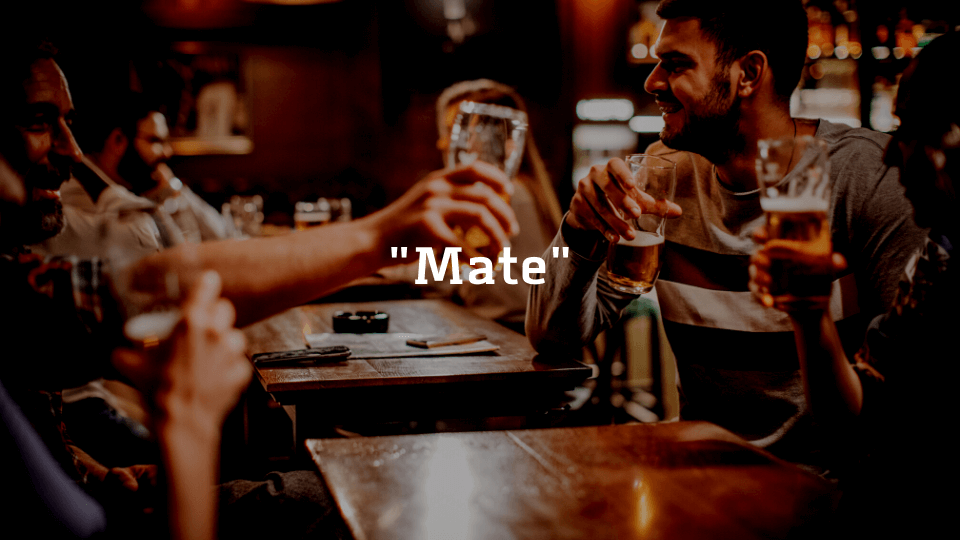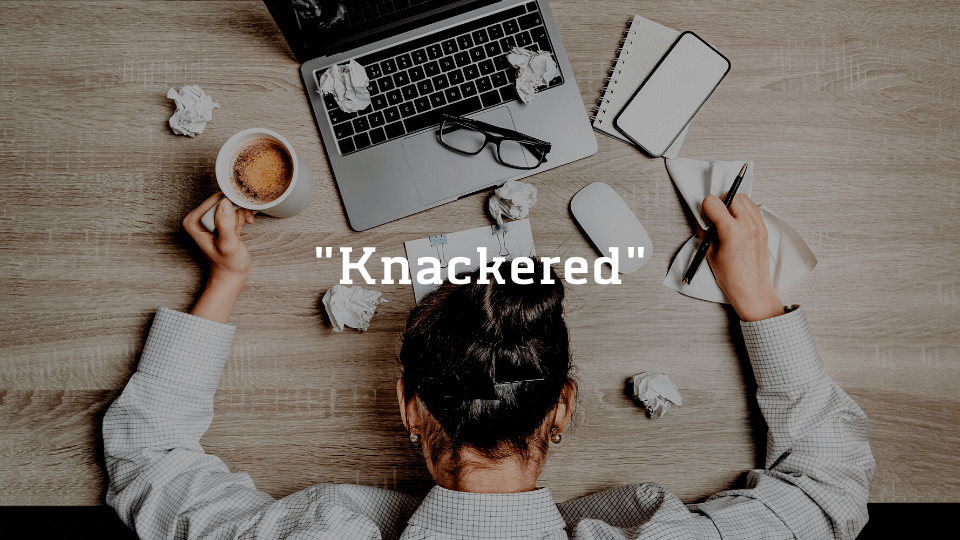【講師ティム】
スラングは、言語学習の楽しくて役立つ側面であり、日常会話を理解するのに役立つだけでなく、文化のユニークな視点を与えてくれます。
今日は、よく使われるイギリスのスラングとその意味を探り、イギリスの人々とより簡単にコミュニケーションを取るための例文をご紹介します。
イギリスのスラング「mate」
「mate」は、友達や仲間を意味する典型的なイギリスの言葉です。誰かに対するカジュアルで友好的な呼び方です。
[例文]
Hey, mate, do you fancy a pint after work?
(ねえ、仕事の後に一杯どう?)
My mate John is coming over for dinner tonight.
(今夜は友達のジョンが夕食に来るんだ。)
I may know a good English teacher. One of my mates is coming to Fukuoka in spring and has worked in Japan as an English teacher for many years.
(いい英語の先生を知ってるかもしれない。春に福岡に来る友達がいて、日本で長年英語講師として働いていたんだ。)
イギリスのスラング「knackered」
「knackered」は、とても疲れたり疲労困憊していることを表すイギリスのスラングです。疲労を表現するのに使われます。
[例文]
I’ve been working all day; I’m absolutely knackered.
(一日中働いて、本当に疲れたよ。)
Teaching kids is an incredibly fun and rewarding profession but sometimes at the end of the day I feel too knackered to do anything else than eat dinner and crash out.
(子供たちを教えるのは非常に楽しくてやりがいがある仕事だけれど、ときどき一日の終わりには夕食を食べてすぐ寝る以外何もしたくないほど疲れ果ててしまう。)
イギリスのスラング「gutted」
「gutted」は、極度の失望や悲しみを表すスラングです。本当にがっかりした状況でよく使われます。
[例文]
I can’t believe we missed the last train; I’m absolutely gutted.
(最後の電車に乗り遅れたなんて信じられない、本当に落ち込んでる。)
I was gutted when I heard that I wasn’t chosen for the job.
(その仕事に選ばれなかったと聞いて、本当に落ち込んだ。)
イギリスのスラング「cheers」
「cheers」は、乾杯する時だけでなく、さまざまな使い方ができるスラングです。
いろんな文脈で「ありがとう」「さようなら」または何かに同意や理解を示すフレンドリーな方法として使われます。
[例文]
Cheers for helping me with my groceries.
(食料品の買い物を手伝ってくれてありがとう。)
Cheers, see you later!
(さようなら、またね!)
You know we have a meeting tomorrow? Cheers.
(明日会議があること知ってる?よろしくね。)
「Cheers」の詳細については下記の記事にまとめてますので、ぜひご覧ください。
私のレッスンでは、生徒さんたちが誰と英語で話すかにかかわらず、どんな状況でも使える英語を話すようにしています。
多くの生徒さんが仕事や旅行のため、または外国人とより良くコミュニケーションを取るために英語を学んでいますが、その多くの場合、彼らが話す外国人は全員イギリス人という訳ではないからです。
イギリスやイギリス人との交流に興味がある生徒さんには、イギリスのスラングをご紹介しています。
まとめ
「mate」「knackered」「gutted」「cheers」などのイギリスのスラングを探求することは、イギリスの文化や言語への理解を深める助けなります。
英語講師として、私は主にイギリスに興味があったり、イギリス人と交流する生徒さんたちにスラングを選択的にご紹介しています。
スラングは会話をカラフルにするものですが、考えて使用するべきだということは忘れないでくださいね。
教えたり、旅行したり、学習したりに関わらず、スラングはあなたの言語スキルを豊かにし、異なるバックグラウンドを持つ人々との繋がりを助けてくれます。
実践的な英語ならケンジントン英会話
ケンジントン英会話では、教科書には載っていない、生きた表現を身に付けられます。
福岡市内の教室やオンラインで、経験豊富でフレンドリーな講師と一緒に英語を学びませんか?
実践的な英語を学びたい方はケンジントン英会話の公式サイトをチェック!
[英語原文]
British Slang – What do “Mate,” “Knackered,” “Gutted,” and “Cheers” mean?
Slang can be a fun and useful aspect of language learning, helping you understand everyday conversations and giving you a unique view of the culture. Today we’ll explore some commonly used British slang terms, their meanings, and provide example sentences to help you be able to communicate with British people more easily.
“Mate”
Definition: “Mate” is a quintessentially British term for friend, buddy, or companion. It’s an informal and friendly way to address someone.
Example Sentences:
- 1. Hey, mate, do you fancy a pint after work?
- 2. My mate John is coming over for dinner tonight.
- 3. I may know a good English teacher. One of my mates is coming to Fukuoka in spring and has worked in Japan as an English teacher for many years.
“Knackered”
Definition: “Knackered” is a British slang word for feeling extremely tired or exhausted. It’s used to express fatigue.
Example Sentences:
- 1. I’ve been working all day; I’m absolutely knackered.
- 2. Teaching kids is an incredibly fun and rewarding profession but sometimes at the end of the day I feel too knackered to do anything else than eat dinner and crash out.
“Gutted”
Definition: “Gutted” is a slang term used to express extreme disappointment or sadness. It’s often used in situations where you’re really let down.
Example Sentences:
- 1. I can’t believe we missed the last train; I’m absolutely gutted.
- 2. I was gutted when I heard that I wasn’t chosen for the job.
“Cheers”
Definition: “Cheers” is not just a toast for a drink; it’s also a versatile slang word. In various contexts, it can mean thank you, goodbye, or a friendly way to acknowledge something.
Example Sentences:
- 1. Cheers for helping me with my groceries.
- 2. Cheers, see you later!
- 3. You know we have a meeting tomorrow? Cheers.
As an English teacher in Fukuoka, Japan, I try to use language with my students that can be used in any situation regardless of who they are speaking to. Many of our students learn English for work, travelling or for being able to communicate with foreign people better and in many of those instances the foreign people they will be talking to won’t be British. So, I only really introduce British slang to students that are interested in Britain or will be interacting with British people.
In sum, exploring British slang, including words like “mate,” “knackered,” “gutted,” and “cheers,” offers a window into UK culture and language. As an English teacher, I introduce slang selectively, mainly to those interested in Britain or interacting with Brits. As English learners please remember that slang makes conversations colorful but also that it should be used thoughtfully. Whether you’re teaching, traveling, or just learning, slang can spice up your language skills and help you connect with people from different backgrounds.
~*~*~*~ \ Follow me / ~*~*~*~
Instagram : @kensington_eikaiwa
Twitter : @Kensington_Eng
Facebook : @kensingtoneikaiwa
YouTube : KENSINGTON英会話
~*~*~*~*~*~*~*~*~*~*~*~*~*
◆お問い合わせはこちら
ケンジントン英会話:お問い合わせフォーム






































